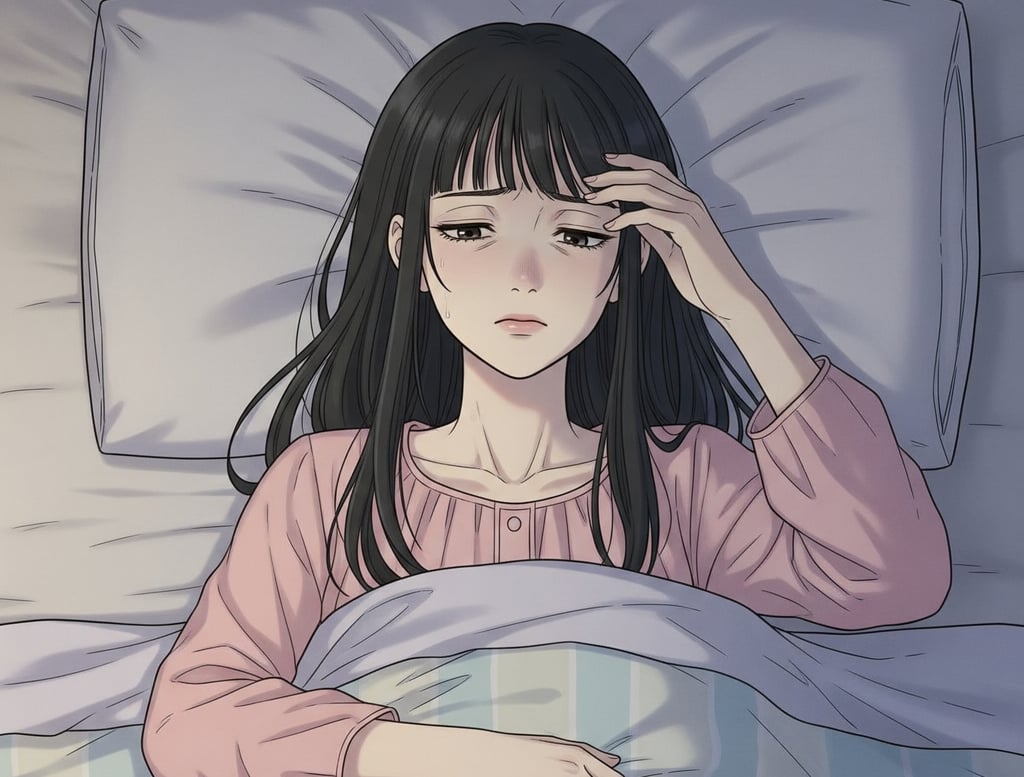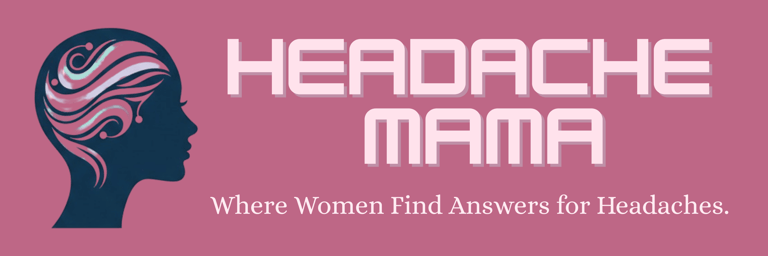Teen Menstrual Migraines: Why Your Period Headaches Hurt So Much
Are your monthly period headaches unbearable? You might have a menstrual migraine. Learn the signs, how to get support, and find relief that actually works.
7/14/20254 min read


So, you know the drill. Your period is on its way, and with it comes the usual squad: cramps, feeling blah, and maybe some major snack cravings. But what if, for you, it also brings a monster of a headache? Not just any headache, but a throbbing, pulsing pain that makes you want to crawl into a dark cave and never come out.
If this sounds familiar, you might be dealing with something called a menstrual migraine. And no, you're not being dramatic. It's a real thing, and it's time we talked about how to spot it and get the support you deserve.
What’s a Menstrual Migraine, Anyway?
Basically, it’s a migraine that’s tied to your monthly cycle. Think of your hormones, especially one called estrogen, as being on a rollercoaster every month. Right before your period starts, your estrogen level takes a nosedive. For some girls, this sudden drop is the main trigger for a super intense headache.
These aren't your average "I'm stressed about a test" headaches. Menstrual migraines often feel way worse, can stick around for days, and don't always get better with the usual painkillers. They typically show up in the two days before your period or during the first three days of it.
How to Know if It’s a Migraine
It can be tricky to figure out if your headache is just a bad headache or a full-on migraine. Here are some clues to watch for:
Look for a Pattern: This is the biggest clue! Does this monster headache crash your party around the same time every month, right before or during your period? Start tracking it. Use a period app or just a simple notebook. For a couple of months, jot down when you get your period and when the headaches hit. This will be super helpful info!
The Type of Pain: Is the pain throbbing or pulsing, like a horrible drumbeat inside your head? Is it mostly on one side? That’s classic migraine behavior.
The Unwanted Extras: Migraines rarely travel alone. They usually bring along some nasty sidekicks, like:
Feeling sick to your stomach or actually throwing up.
Being extra sensitive to light (like you need sunglasses indoors).
Sounds feeling way too loud and painful.
Feeling dizzy or totally wiped out.
Some girls also get something called an "aura" before the pain starts. It’s like a weird warning signal from your brain. You might see flashing lights, zigzags, or have blurry spots in your vision.
You Don't Have to Go Through This Alone: Getting Support
Feeling this awful every month is tough, and having people in your corner makes all the difference.
Talk to Your Parents: Let them know how bad it really is. Don't downplay it. Show them the headache diary you've been keeping. They can help you talk to a doctor and speak up for you when you're not feeling up to it.
Let Your Friends In: It's okay to tell your friends why you have to cancel plans or go home early. A true friend will get it. They'd rather you take care of yourself than pretend you're okay.
Give Your School a Heads-Up: Tell the school nurse what's going on. If a migraine hits during school, they can let you rest in a quiet, dark room. Your teachers might also be more understanding about deadlines if they know you're dealing with a real medical issue.
Ways to Fight Back and Find Relief
You are not powerless against this! There are so many things you can do to manage menstrual migraines.
Everyday Life Hacks:
Be a Sleep Queen: Try to go to bed and wake up around the same time every day, even on weekends. Your body loves a routine.
Water is Your Bestie: Dehydration is a huge migraine trigger. Keep a water bottle with you and sip on it all day.
Don't Skip Meals: When your blood sugar drops, it can trigger a headache. Try to eat regular, healthy meals to keep things stable.
Chill Out: Stress is like fuel for a migraine. Find what helps you relax. It could be listening to music, doodling, trying some yoga, or just taking a few deep breaths.
When You Need a Little More Help:
If you've tried all the life hacks and you're still struggling, it's definitely time to see a doctor. They can confirm if it's menstrual migraine and talk about other options:
For When a Migraine Hits: Your doctor can prescribe medicines that you take as soon as you feel a migraine coming on to stop it in its tracks. These are stronger and work differently than the painkillers you buy at the store.
To Stop Migraines Before They Start: If your migraines are happening all the time, your doctor might suggest taking a medicine for a few days before and during your period to prevent them from even starting.
Hormonal Help: Sometimes, birth control pills can help by evening out your hormone levels. This isn't the right choice for everyone, especially if you get an aura, but it's something a doctor might discuss with you.
You deserve to live your life without dreading your period every month. By understanding what’s happening in your body and knowing how to ask for help, you can take back control. You've got this.
References
American Migraine Foundation. (n.d.). Menstrual migraine. Retrieved July 15, 2024, from https://americanmigrainefoundation.org/resource-library/menstrual-migraine/
Cleveland Clinic. (n.d.). Menstrual migraines (hormone headaches). Retrieved July 15, 2024, from https://my.clevelandclinic.org/health/diseases/8260-menstrual-migraines-hormone-headaches
Maasumi, K., Tepper, S. J., & Newman, L. C. (2017). Menstrual migraine. Headache: The Journal of Head and Face Pain, 57(1), 1–13. https://doi.org/10.1111/head.12979
Mayo Clinic. (2023, July 18). Migraine. https://www.mayoclinic.org/diseases-conditions/migraine-headache/symptoms-causes/syc-20360201
National Health Service. (2022, November 23). Migraine. https://www.nhs.uk/conditions/migraine/
Disclaimer
Content on HeadacheMama.com is for informational purposes only and is not a substitute for professional medical advice. Always consult your doctor.
contact@headachemama.com
© 2025. All rights reserved.
